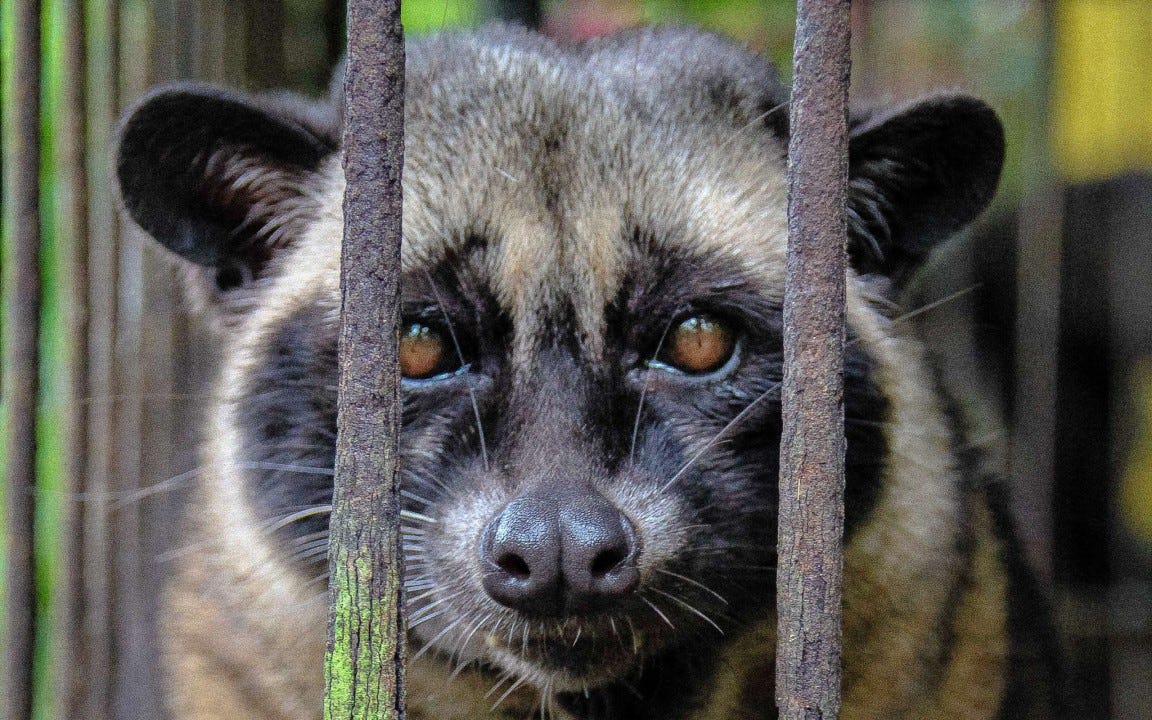If the all-caps title feels a bit like a shout, well then good - that's the idea! Jes Hooper of the The Civet Project Foundation says, "Tourists are central to the civet coffee trade. And the civet coffee trade is central to animal exploitation. Everybody has a responsibility to make sure that this type of industry doesn't last."
Civets are small mammals…
Keep reading with a 7-day free trial
Subscribe to The Rewilder Weekly to keep reading this post and get 7 days of free access to the full post archives.



